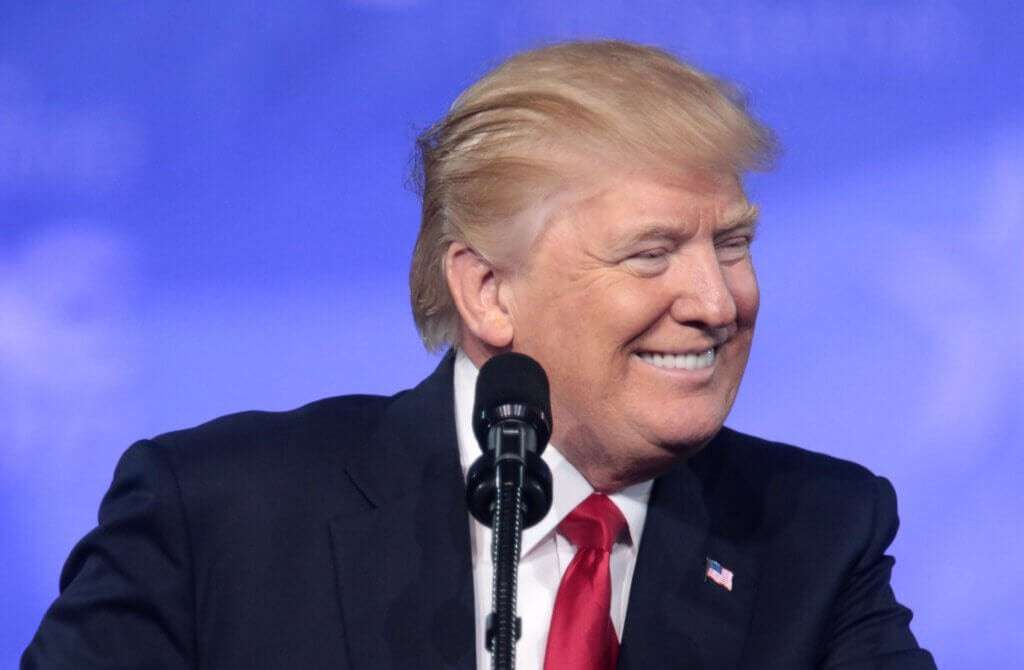New research has found that Americans who voted for Donald Trump in 2016 are particularly prone to anti-vaccination attitudes and that these attitudes can be exacerbated by the president’s tweets. The findings have been published in the Journal of Experimental Social Psychology.
“I’m generally interested in anti-vaccination beliefs because they have the potential to do so much damage. When Trump was elected it also struck me as a curious moment in history, because he was the first U.S. president in modern history to be on the record with anti-vaxx views,” explained study author Matthew J. Hornsey, a professor at the University of Queensland Business School.
Trump had sent dozens of tweets linking vaccinations with autism, such as one in 2014 that read: “Healthy young child goes to doctor, gets pumped with massive shot of many vaccines, doesn’t feel good and changes – AUTISM. Many such cases!”
Hornsey remarked that Trump is “the most conspiracy-minded president in modern history. It was natural to wonder, then, whether Trump supporters were more anti-vaxx than other Americans, and whether Trump’s tweets had the potential to still do damage.”
The researchers first conducted a scientific survey of 518 Americans who voted in the 2016 presidential election. They found that participants who voted for Trump tended to be more conservative and more conspiracy-minded, which in turn made them more likely to express concerns about vaccines and agree with statements such as “Children get more vaccinations than are good for them.”
“There’s a conspiratorial worldview that Trump voters hold more than other people; that it’s commonplace for groups of elites with hidden agendas to band together and conduct elaborate hoaxes on the public in near-perfect secrecy. And the data show that having that worldview makes you much more likely to be anti-vaxx,” Hornsey told PsyPost.
“We then did a study to test whether reading Trump’s anti-vaxx tweets still have an impact on the public.”
In the second study, another 316 Americans who voted in 2016 completed the same scientific survey. About a week later, the participants were randomly assigned to either view Trump’s tweets about vaccines or a view Trump’s tweets about golf. They then reported their levels of concern about vaccination for a second time.
“Trump voters became more anti-vaxx after reading his tweets. So Trump doesn’t just reflect the views of his supporters, he still has the power to shape his supporters’ views,” Hornsey explained.
“We thought that reading Trump’s tweets might shock liberal voters into being less anti-vaxx. But it didn’t. Trump’s tweets made his own supporters more anti-vaxx but had no effect on anyone else. So it was all downside; there was no upside to the tweets, sadly.”
Trump appears to have reversed course on this issue, however.
“Trump has stopped making anti-vaxx statements since he became president. Last year, he even encouraged parents to vaccinate their children in the face of a measles outbreak. We’re hoping this is a permanent change of heart, especially in the wake of COVID-19. Every president since Roosevelt has swung behind the science on vaccination. It’s promising that Trump has stopped backing himself into a corner on this, because his words can save lives,” Hornsey said.
The study, “Donald Trump and vaccination: The effect of political identity, conspiracist ideation and presidential tweets on vaccine hesitancy“, was authored by Matthew J. Hornsey, Matthew Finlayson, Gabrielle Chatwood, and Christopher T. Begeny.

Jauffretheking on April 3rd, 2020 at 19:57 UTC »
Well that's good if he's changed his tune on the subject. There's work to be done still if trump wants to change that perception of him perhaps. If you're looking at the bigger picture it's leaning towards something good I think. The polling numbers wouldn't make me confident enough to bet money on a random trump supporter being anti-v however.
I would say you might misread people if you go into things with the mindset that someone is say gullible or even anti-authority. It can be hard to change peoples minds if they think you're looking down on them and can push people away.
drkgodess on April 3rd, 2020 at 15:08 UTC »
Key points:
PM_your_cats_n_racks on April 3rd, 2020 at 13:46 UTC »
This study seems kind of obvious. The conclusion is basically: "People who listen to Trump are more likely to listen to Trump."
Glancing through this thread, a lot of people are makng the mistake of thinking that this is about right vs. left, or dumb vs. smart, or conservative vs. progressive. No, that's not the case. This is specifically about people who voted for Trump and people who did not.
The study concludes that people who voted for Trump are more likely to pay attention to what he says.
Not that I'm calling this a useless study, obvious things also need to be studied. Just don't read something into this which isn't there.
Edit: After getting so many responses I think my summary might have been a little over simplistic, too many people are interpreting it how they want to interpret it. However, I think maybe that's also why it was so popular... Well that and the fact that I posted it early, and reddit's voting system discourages people from spending time on a considered analysis.
Anyway, I'm just going to paste the abstract here. Honestly, that's probably what the first comment should be in every thread.